1 in every 5 people suffer from Dyslexia with symptoms ranging from mild to severe with some cases undiagnosed for years through adulthood.
CORAkids is our signature program designed specifically for our youngest patients to help children with a range of diagnoses. Everything from arthritis to Down syndrome to torticollis to vestibular dysfunction and so much more. It’s our pediatrics program with expert physical, occupational and speech language therapies under one roof.
One of those conditions our Speech-language Pathologists treat is dyslexia. It’s fairly common so chances are you’ve either heard the terminology used before in conversation or know someone who has experienced some level of dyslexia. In fact, 1 in 5 people may have dyslexia and around 40% of people with dyslexia may also be diagnosed with ADHD making it hard to focus on any given task. So, if you happen to be in that 20% of our entire population, we want you to keep in mind that you’re not alone in your daily fight.
As a parent, it’s important to know that approximately 70-85% of children who are placed in special education for learning disabilities are dyslexic. Don’t panic! Symptoms of dyslexia range from mild to severe with some cases remaining undiagnosed for years through adulthood.
Dyslexia is not a disability that individuals can’t overcome. And although there is no official cure for dyslexia, research demonstrates that early assessment and intervention result in the best outcomes. Good news is it’s never too late to seek help!
What is Dyslexia?
The official definition of dyslexia labels the condition as a specific learning disability that is neurobiological in origin. It is characterized by difficulties with accurate or fluent word recognition; and oftentimes, by poor spelling and decoding abilities. These difficulties typically result from a deficit in the phonological component of language that is often unexpected in relation to other cognitive abilities and the provision of effective classroom instruction. Secondary consequences may include problems in reading comprehension and reduced reading experience that can impede growth of vocabulary and background knowledge.
Signs and Symptoms of Dyslexia. How is it Diagnosed?
The Mayo Clinic says this: Signs of dyslexia can be difficult to recognize before your child enters school, but some early clues may indicate a problem. Once your child reaches school age, your child’s teacher may be the first to notice a problem. Severity varies, but the condition often becomes apparent as a child starts learning to read.
Signs that a young child (pre-school) may be at risk of dyslexia include behaviors such as late talking, problems forming words correctly or reversing sounds in words, problems remembering letters, numbers and colors, learning new words or difficulty learning nursery rhymes.
As children grow older and enter school-age, the signs and symptoms of dyslexia may become more apparent. This is where your child’s teacher can help identify symptoms such as:
- Reading well below the expected level for age
- Problems processing and understanding what he or she hears
- Difficulty finding the right word or forming answers to questions
- Problems remembering the sequence of things
- Difficulty seeing (and occasionally hearing) similarities and differences in letters and words
- Inability to sound out the pronunciation of an unfamiliar word
- Difficulty spelling
- Spending an unusually long time completing tasks that involve reading or writing
- Avoiding activities that involve reading
Does Dyslexia Mean I’m Not Intelligent or My Child is Different from Other Kids?
Absolutely not! Dyslexia has nothing to do with intelligence; it simply describes a different kind of cognitive processing. According to the International Dyslexia Association, “Dyslexia is a language-based learning disability that presents a cluster of symptoms and typically results in people having difficulties with specific language skills, particularly reading. Students with dyslexia often experience difficulties with both oral and written other language skills, such as writing, and pronouncing words and writing.”
The exact causes of dyslexia aren’t completely clear, though experts have identified that the condition affects the development and functions of the brain. What this means is that symptoms of dyslexia may offer certain challenges or difficulties learning new skills, and it’s likely to impact the development of reading and spelling skills. However, most individuals with dyslexia learn coping mechanisms that lead to varying levels of impact across the different stages in a person’s life.
Embrace the Strengths!
There are common misconceptions about the difficulties that dyslexia presents. Let’s take a moment to add that those with this learning disorder also have fantastic strengths! And these important strengths should never go overlooked. Strengths we like to highlight in any discussion regarding dyslexia are aplenty. Our patients and those 20% of individuals diagnosed with dyslexia are:
- Highly intuitive
- Excellent problem solvers
- Easily see the big picture
- Can simplify information
- Good at visualizing
- Great abstract thinkers
And to set the record straight … individuals with dyslexia are NOT afraid to work hard. Boy, can they put in the work to learn, grow, develop and excel at their craft(s). There are many articles, videos, and studies via simple Google search “let’s talk about dyslexia” that highlight the work ethic and many positive attributes of individuals with dyslexia.
Did You Know? Some Final Food for Thought…
There are many well-known people, celebrities and multi-millionaires abound, who have risen to great heights with dyslexia. To name a few: Tom Cruise, Richard Branson, Henry Winkler, Steven Spielberg, Pablo Picasso and Albert Einstein all are known to have struggled with dyslexia. That’s a very accomplished list of forward-thinkers who excel, or have excelled, at their craft!
Overcoming Dyslexia with Therapists and Child Development Professionals
At CORA, we see dyslexia through a different lens. There are patients at each end of the spectrum and everywhere in between. Each individual offers a unique perspective and challenges that we love, admire, and use for our own growth. Our SLPs are able to mindfully evaluate each case and create targeted plans of care.
Even more importantly: we work together. Consistent communication between physicians, child development professionals and families and caregivers is easy and seamless since many of our clinics integrate multiple disciplines onsite. Gaps within care are virtually eliminated. Integrated programs are the norm. We truly function as partners in the continuum of progress, for faster, more sustainable results.
Give Me More! More What? More Conversations and Important Topics on Speech and Language Development Coming Soon.
We’re glad you asked. In case you missed it, here’s some of what we’ve covered so far during Better Hearing and Speech Month:
- Feeding and Swallowing
- Speech and Language Development Milestones
- 5 Outdoor Activities to Improve Speech and Language Skills for Toddlers
- Communication at Work: Day in the Life of Mackenzie Nassar, M.S. CCC-SLP
But WAIT..we can’t give it all away! Check back next week to see what we have in store for you as we celebrate our Speech-Language Pathologists at CORA. Or you can find our CORA location nearest you to speak with a licensed expert today.
